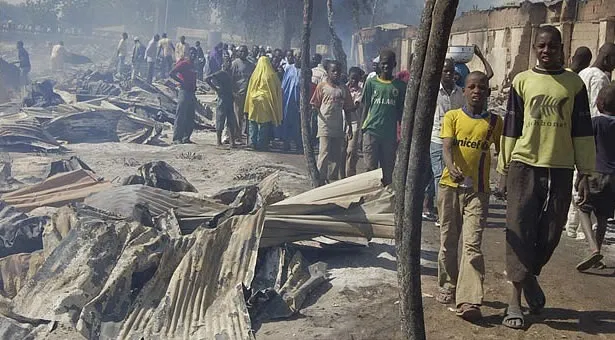Alex Batubo
Any form of ethnic or national chauvinism needs to be avoided at all costs as it divides and weakens the working class. So we should not even suggest that any ethnic group, foreigners or aliens are any part of the ‘problem’. One of the most dangerous possibilities is the descent into inter-ethnic violence – Cameroon, Central Africa Republic, Sudan are all clear warnings of where that road may take us.
We need to concentrate on stopping future killings as well as catching the “terrorists”.
Whoever does the actual killings, catching them will not bring the dead back to life. Revenge cannot bring peace and tranquillity. All killings and attacks should be subject to the full process of the law, but we also need to develop community cohesion and deal with the underlying causes of insecurity.
The roots of insecurity are economic.
Insecurity started with Boko Haram, in the NE, the poorest region of Nigeria. That is why it is worse now with the increased poverty over that last two years. Land poverty has been made worse by climate change, population growth and land grabbing by the rich and powerful. In many cases this has resulted in privatisation of the commons, where land available to all in the community for farming or grazing is now only available to a few rich ‘owners’.
Joe Ajaero, President of the Nigeria Labour Congress, said in mid-April that militancy, kidnapping and other social vices would drastically reduce if the federal and the sub-national governments created more jobs.
Insecurity will only significantly reduce when inequality and poverty are greatly minimised.
Insecurity includes many different issues that may require different solutions.
Kidnapping, banditry, burglary, bank robbing, farmer/herder disputes cattle rustlers, cultists Niger Delta militants, Boko Haram insurgents all require different approaches. Beyond the key issue of reducing hunger and poverty.
We need an evidenced based approach that does not assume that there are easy answers.
Will ranching/cattle colonies etc really provide a viable solution in the particular circumstances in present day Nigeria? Ranching in Nigeria in the 1950s or Belgium or Bulgaria at any time are not really relevant. The experience in Senegal, Burkina Faso, Kenya and Tanzania are far more relevant and do not provide clear and simple answers.
Communities are defending themselves, but this needs to involve the minimum use of violence or weapons. At best community security is only a temporary, short-term solution. We need to be able to move beyond this.
In general terms we want guns removed from the streets, we want the army to generally remain in the barracks and the police to reduce the level of lethal force that they carry on a daily basis. Police guns are generally an easy source of weapons for those going on to cause insecurity.
I am not sure that there is really a recent problem with impunity. We know that the rich have been able to buy their way out of police custody for decades. The widespread use of bombing by the air force is extremely dangerous – in Borno, Zamfara, southern Kaduna, Benue etc. The Sultan of Sokoto says that seven out of 10 arrested kidnappers are Fulani – so some Fulani are being arrested.
Insecurity is a global problem. Often the result is the rich living in gated communities with armed guards – as in South Africa and the US. Crime and insecurity are higher in countries with more poverty. Crime increases when unemployment increases.
For details of the dangers of bombing by the Air Force, see:
https://socialistlabour.com.ng/how-can-we-address-insecurity-do-aerial-bombardments-have-any-role-2/






